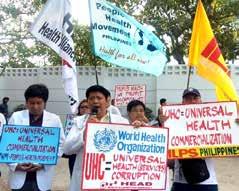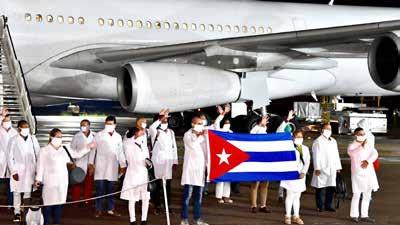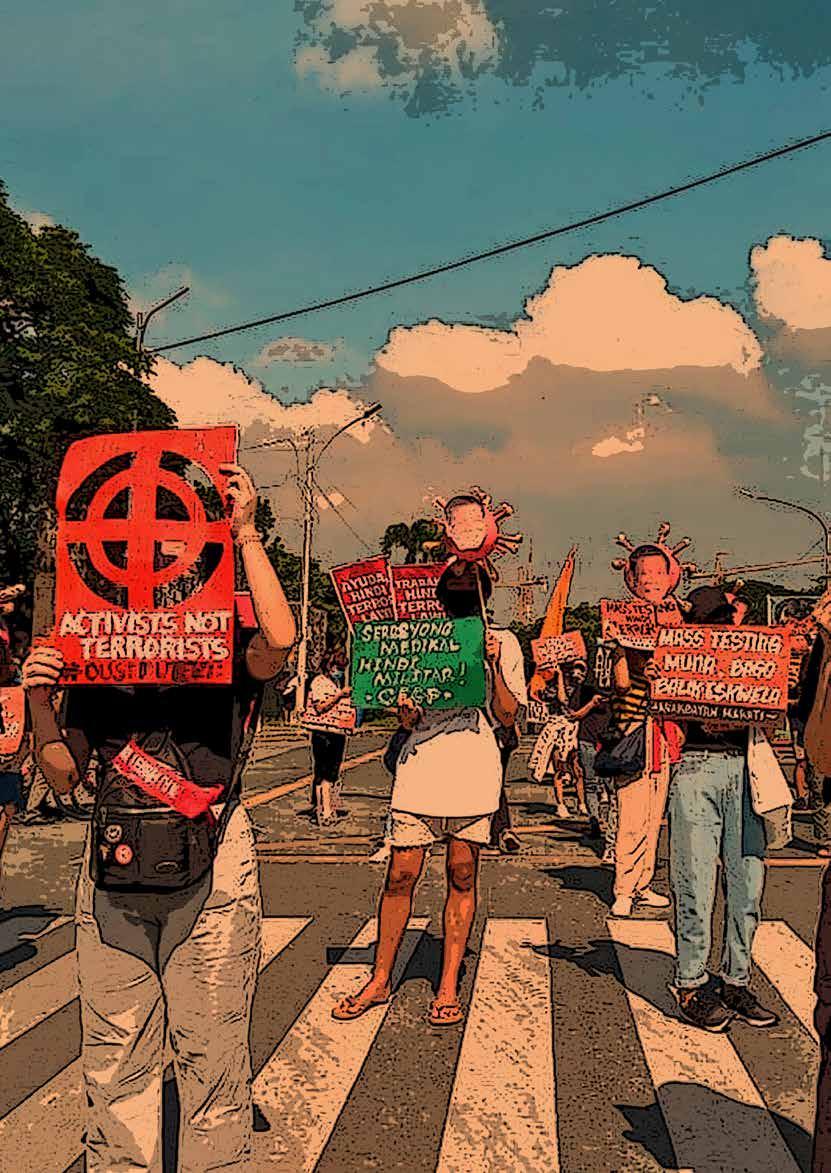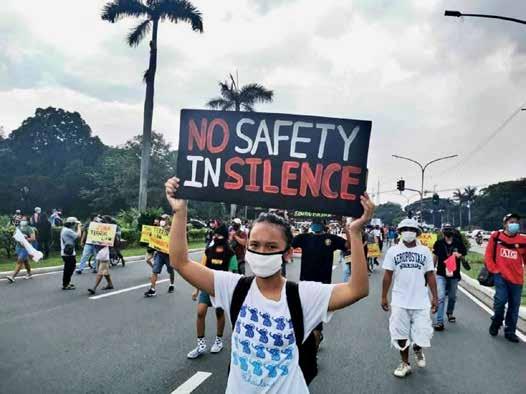
5 minute read
ALL TOGETHER FOR A HEALTHY SOCIETY
8 big food multinationals were able to pay 18 billion dollars dollars in dividends to their shareholders in the first half of 2020.
This is ten times the amount the UN states it needs to save people from famine. The World Food Agency estimates that by the end of 2020 6.000 to 12.000 people may die from hunger as a consequence of the corona.
Advertisement
Source: Oxfam International
THE CORONA PANDEMIC IS NOT JUST A CRISIS, IT ALSO PROVIDES AN OPPORTUNITY TO BUILD A HEALTHY SOCIETY. TO MAKE SURE THIS HAPPENS, WE NEED SOCIAL MOVEMENTS WITH SPACE TO PLAY THEIR ROLE IN SOCIETY.
ALL TOGETHER FOR A HEALTHY SOCIETY
Disasters and crises always pose a challenge. They shake up society and take political certainties down. Some governments take advantage of the population’s uncertainty to broaden the gap between poor and rich. Still, a crisis may also offer perspective to build a healthy, social, just and sustainable future. This also goes for today’s crisis.
Various problems, one struggle
The corona pandemic has exposed the links between various problems in our society. The causes and consequences of the corona crisis can’t be dissociated from the catastrophic consequences of budget cuts and privatizations in healthcare, the climate crisis, the social inequality growing year after year and the racism so deeply rooted in our society. This makes the struggle for the right to health a struggle for social justice and climate justice too.
This provides opportunities for building a counter force. Alongside trade unions, climate, women’s and antiracism movements, health activists can put structural change on the agenda and enforce social justice. ⊲
People’s Health Movement
Since 2000, Viva Salud is involved in the People’s Health Movement (PHM), a worldwide movement of activists, health organizations and academic institutions committed to the right to health. PHM is an important international voice in the fight for strong primary healthcare and a comprehensive vision on health. With other movements, it has seized the corona crisis to expose the global links between our health, climate, racism and economy. It also casts a critical eye on the World Health Organization’s policies through WHO Watch. PHM proposes alternatives in a constructive contribution to international health policy.
We will also need these joint forces at international level. The coronavirus disregards country borders. The answer to global problems will need to be a global one. Even if institutions like the World Health Organization are far from perfect, they are vital in efficiently addressing the next pandemic.

Solidarity as the answer
The coronavirus did not only bring doom and gloom. Local and international solidarity initiatives were set up everywhere. Local committees support elderly people in their neighbourhoods, people help each other do their shopping, we applaud healthcare workers. We also saw international solidarity. At the end of March, Cuba sent 52 doctors to Northern Italy to support hospitals and China shipped medical supplies to other parts of the world to help resolve shortages.
Our partners in Congo, the Philippines, Palestine and Cuba are also fully committed to the communities they work with. In Palestine, youth movements handed out flyers explaining what to do to stop the virus from spreading, they distributed hygiene kits and food packages, help disinfect the streets, offer help to those most affected by the crisis and call elderly people and patients of local health centres to check if they are doing alright. In Congo, our partners organized their health activists to spread prevention messages from door to door and collect protective material.
Who is paying for this crisis?
In a bid to tackle the challenges this crisis poses, many governments throw their austerity dogmas overboard. While we have been told for years there was no money, billions of euros are now being made available to reduce the pandemic’s impact. European Union member states are free to ignore the strict budgetary and debt norms, nationalization of companies is being considered left and right and, amid pressure from health workers, the Belgian government invested 1 billion euros in the healthcare sector. Investments in strong public healthcare and social security are vital if we are to overcome this crisis.
Financial support from the government however does not imply there will be no budget cuts or social disasters any more or that the strongest shoulders will carry the burden of the corona crisis’ costs. The 2008 financial crisis has taught us that. State intervention was temporary and mainly served the interests of multinationals and shareholders. The population was left to pay the bill.
Today’s corona crisis won’t automatically lead to social change and more social justice either. The consequences of the corona pandemic will be felt for years. Without the involvement and struggle of social movements its impact will only increase and the bill will end up in the hands of ordinary citizens again. We can only achieve a healthy society by struggling for it together.
Invest in international solidarity
The virus knows no frontiers. This makes international solidarity and support a necessity and not just an option. This is a task for both social movements and our government.
We therefore urge the Belgian government to keep investing in international solidarity so social movements can continue their fight for the right to health, strong public healthcare and social justice.
If we are to build a socially just society from this crisis, it will only be done by giving social movements the space to play their important role. They need everyone’s support to do this.
ALL HEROES FOR HEALTH



